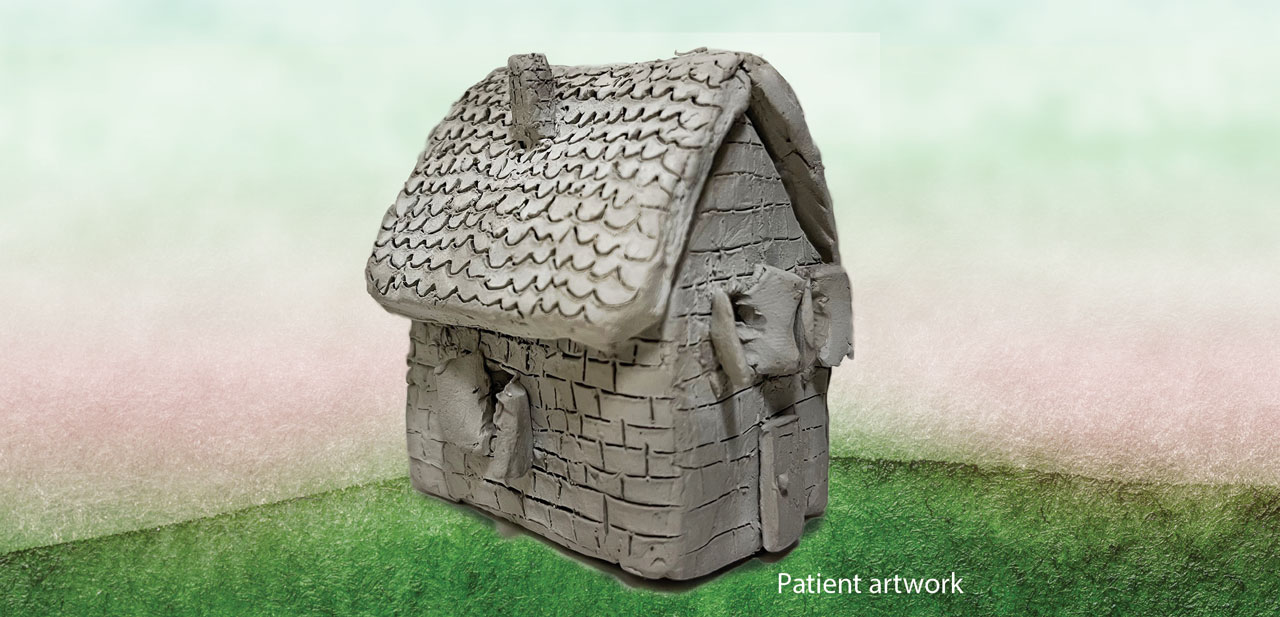“This form of self-expression is proven to be beneficial in helping people process trauma,” explains Andrews. “Art therapy helps access the non-verbal areas of the brain. When patients express themselves through art, they may then find the words to process that experience.”
Andrews, who completed her clinical internship at Penn Medicine Princeton House Behavioral Health’s Moorestown site, plans art therapy directives in a way that builds in flexibility to adapt to the needs of the group and how participants may be feeling on any particular day. For example, sometimes scribbling with oil pastels to represent emotions may be more grounding than a pre-planned directive. Or if patients are struggling with perfectionism or rigidity, Andrews may start with the use of pencils and progress to using the opposite hand or trying more fluid mediums like clay or watercolors when they feel more comfortable.
The experience of creating acknowledges each person’s unique expression. While Andrews often initiates discussions to explore the personal meaning and emotions behind a patient’s artwork, she notes that the focus is on the process, not the product.
The sessions also provide the opportunity to practice mindfulness and can serve as a more relaxing change of pace between therapy sessions.
“When I hear laughter in the group, I know it’s been an effective session,” she adds. “That emotional release means patients know they can share safely in a nonjudgmental space."

